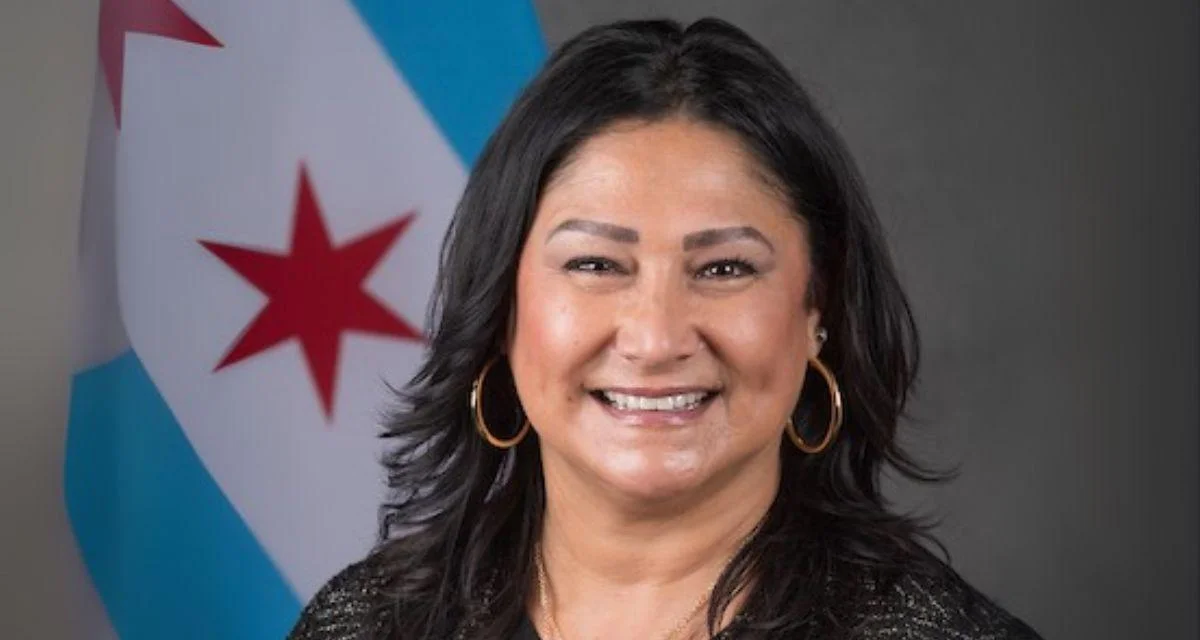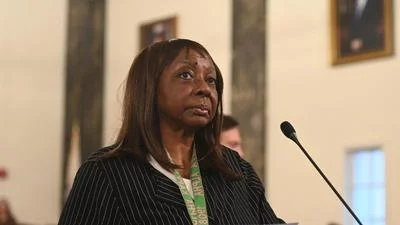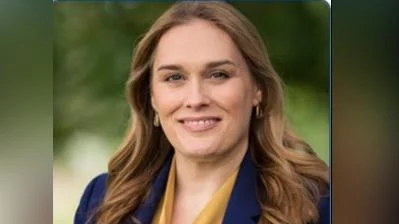Julie Hernandez-Tomlin Commissioner | Chicago’s Department of Fleet & Facility Management (2FM)
Julie Hernandez-Tomlin Commissioner | Chicago’s Department of Fleet & Facility Management (2FM)
As President Donald Trump threatens to deploy the National Guard in Chicago, local leaders, residents, and experts have voiced strong opposition, arguing that the city needs federal investment rather than military intervention.
Mayor Brandon Johnson stated, “Our nation has already tried over-policing and incarcerating our way to safety, and that is how we ended up with the largest prison population in the world without solving our challenges with crime and violence. I urge our federal government to listen to the advocates, experts, and Chicagoans who are calling for resources that stop the endless flow of guns in our city as well as transformational investments in housing, education, mental health, and community safety. These are the same investments that are leading to historic reductions in crime and violence throughout Chicago in recent years, and if President Trump truly cares about building safe cities he will lean into the proven strategies that work.”
Community members expressed concern that a military presence would undermine progress made in reducing violence. Alexis Figueroa, an art gallery owner from the North Side, said: “This is how it starts. You do it in one city, they don’t complain enough, you do it in another, they don’t complain enough, you do it in the whole country — and then you do whatever the hell you want.”
Residents from Humboldt Park shared fears that National Guard deployment would intimidate immigrant families and disrupt daily life without addressing root causes of crime. Jess, who works with a community school safety program and identifies as politically independent, commented: “When you cut all the programs, all the support, what are they going to do? Chicago, overall, is hands down way better than before. Like every city, we have pockets of crime. Everybody’s going to talk smack, but I love Chicago.”
Bradly Johnson of BUILD Chicago said: “It’s a direct affront to the progress our communities have made. It’s not a war zone. They’re vibrant resilient communities where young people deserve opportunities and not intimidation.” John Roman from the University of Chicago added: “The empirical data is very clear that the Chicago trend is extremely positive. Chicago is doing better than the rest of the country on a lot of really important measures.”
Other residents echoed these sentiments. Rene Cardona noted feeling generally safe despite some areas facing more violence: “It depends where you’re at and what time it is. Overall, Chicago’s a pretty good place to live. There’s more good people than bad people here.” Art Jarrett questioned Trump’s characterization of Chicago given his business interests there: “He can’t think it’s that big a killing field; he wouldn’t have built a building here. He’s full of crap,” Jarrett said.
Pastor Donovan Price warned against undermining recent improvements: “When things are finally starting to turn around, you have someone come up with something totally unnecessary that could perhaps change the tide,” he said.
Portage Park resident John Trotti called deploying troops a misuse of military resources: “I think it’s a terrible idea,” he said. Henry Thompson feared militarization would provoke distress rather than improve safety: “They’re not trained to do police work...someone could get hurt that didn’t need to.” Caroline expressed concern for civil liberties: “There’s no reason for the military to be here...these guys know what’s right and wrong and what they’re supposed to be defending, which is our Constitution.”
Legal experts also raised objections. Joseph Nunn from the Brennan Center for Justice remarked: “It’s very important to understand that this is not how we do things in the United States.” Dan Maurer argued soldiers lack training for such missions: “That’s just not morally right, not fair, and certainly not justifiable.” Justin Levitt suggested outcomes may depend on judicial decisions.
Survivors of gun violence advocated for continued investment in social services over troop deployments. Eric Wilkins stated: “Trump is using all his tactics to tear the city apart when we’re working from the grassroots to put it together.” Yolanda Androzzo from One Aim Illinois described Trump’s approach as rooted in fear rather than safety.
Samuel Mormon emphasized social programs’ importance: “We need all the CVI work that we’re doing right now...We need wraparound services.” Former U.S. Education Secretary Arne Duncan criticized Trump for lack of action on gun violence solutions.
Chicago officials highlighted recent initiatives aimed at addressing root causes of violence through expanded mental health services response teams; increased youth summer employment by 47%; affordable housing projects; investments exceeding $1 billion into public schools; modernization of homeless shelters; community wealth-building programs; extension of free high-speed internet access for students; expansion of Sustainable Community Schools; passage of an ordinance supporting green social housing development; and higher homicide clearance rates under Police Superintendent Larry Snelling's leadership.
Recent data show declines over one year including a 21% drop in overall violent crime rates across Chicago along with decreases in homicides (32%) and vehicular hijackings (49%).






 Alerts Sign-up
Alerts Sign-up